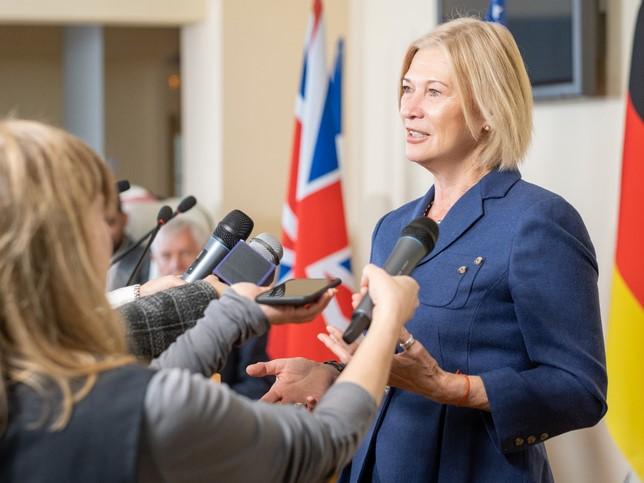
Embedding equality, diversity and inclusion within public policy training for academics
There is a lot of work to do to make academic-policy engagement more inclusive in the UK – and this has been a focus of the Public Policy team at UCL. In a previous blog, we outlined suggestions for structural and cultural changes within higher education institutions, parliament and government, including providing “training offers where everyone feels welcome and heard” and “mentoring and support for a diverse range of researchers to build engagement skills”.
In this blog, I use two case studies from UCL Public Policy’s training portfolio to explore how to design programmes with these recommendations in mind and offer advice for how other institutions can improve the diversity and accessibility of their own programmes.
- Learning the craft of using your research to engage in policy
- Making undergraduate access to research experience transparent and inclusive
- So you want a novel way to support untapped research talent?
Case study one: training
Training plays a big role in supporting greater diversity among researchers engaging with public policy. To recognise this, we launched the Public Policy Masterclass Series in summer 2020. The goal was to work with people from under-represented groups and early career researchers to increase their skills, knowledge and confidence to participate in academic-policy engagement.
After completing two series, we circulated a training impact survey to explore the effect of the training on people’s work. It revealed that 55 per cent identified as being from an under-represented group, of whom 93 per cent said the training was “somewhat” or “very inclusive”. Thanks to the training, participants had gone on to initiate both interpersonal engagement, such as attending policy-related conferences and organising meetings with policymakers, as well as written engagement, such as writing policy briefs and responding to government consultations.
Our evaluations showed that the following four elements helped participants build the skills and confidence to subsequently engage with policy-related activities themselves:
1. Making the teaching materials (slides, recordings) available
Slides and recordings are valuable resources for participants, especially for people with accessibility needs. Circulate the slides before the seminar to enable participants to focus less on copying slide content and more on absorbing information. Make recordings of sessions available to help people who were not able to attend the full session or who wish to revisit elements.
2. Opportunities for participants to put questions to the conveners
Allocate time for participants to raise questions with the tutors; people value the opportunity to clarify content and explore further avenues for learning. It also keeps tutors informed of where participants might need further explanation.
3. Case studies including a diversity of representation
Hearing cases from people who have engaged with public policy helps participants to visualise how theory can be put into practice. Include diverse examples going beyond the “usual suspects” and create opportunities for people from under-represented backgrounds to have a voice.
4. Hearing from fellow participants
Encourage participants who seem knowledgeable on the topic to share their thoughts with the group so others can learn from their experiences. This can be done through the chat function or out loud.
The masterclass has since been developed into a six-module free online series.
Case study two: mentoring
Our pilot Policy Engagement and Impact Fellowship programme was a learning opportunity for early career researchers. The mentorship programme provided in-depth training and hands-on experience to help the fellows develop impactful policy engagement.
We conducted focus groups with the pilot cohort, and our discussions revealed that the four most helpful elements of the mentorship programme were:
1. A streamlined application process
Design an application process that avoids unnecessary workload demands and is accessible for a diverse range of applicants. For instance, minimise the number of questions on the application form and ensure that it meets accessibility standards in terms of font, format, wording and content.
2. Leadership from a dedicated staff member
Appoint a staff member to run the programme who can also act as a mentor providing advice and guidance on the development of individual mentees’ projects.
3. Brokering introductions
Connect mentees with relevant colleagues from across your networks to help them gain confidence and start developing their own professional relationships.
4. Scheduling enough time for participants to develop partnerships and outputs
Ensure that the programme is long enough for participants to “digest” any training provided and to have enough time to develop partnerships and outputs.
We used the findings to improve the 2022 programme. Acknowledging the need for mentoring for a diverse range of researchers, we ring-fenced funding for five of the eight fellowships for early career researchers from under-represented backgrounds.
Call to action
Creating training and mentoring programmes is not a silver bullet to becoming EDI-compliant. Efforts must be made to understand what students, researchers and staff from under-represented groups need to support their academic-policy engagement journeys.
All the activities described above – the development of the masterclass series, and the Policy Engagement and Impact Fellowship – were delivered on a conservative budget by me, a professional in the knowledge exchange space. Building capacity among people from under-represented groups does not require massive investment or staffing changes. However, it does need a dedication to embedding EDI within a team’s work stream and the resources in place to support a staff member to do so. If universities are serious about making a difference, they need to ensure that these conditions are sustainably met. Ultimately, designing accessible and inclusive programmes benefits not only people from under-represented groups, but a much wider audience as well.
Audrey Tan is public policy engagement facilitator, UCL Public Policy, UCL.
If you found this interesting and want advice and insight from academics and university staff delivered directly to your inbox each week, sign up for the THE Campus newsletter.
Additional Links
Learn more by completing the free six-module Public Policy Engagement Online Series on UCL eXtend.




